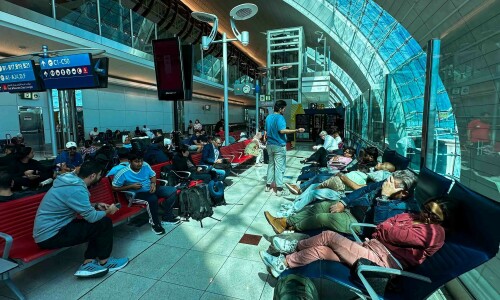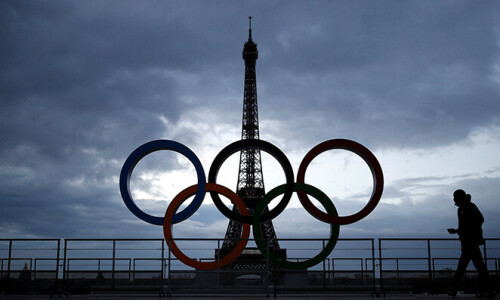FOOD price inflation has been rearing its menacing head for the last couple of years, increasing the strain on lower-middle-income household budgets. Though headline inflation has dropped to below 10pc in the last few months, food inflation is still in the double digits. In a country like Pakistan, where most families spend over half their income on food, the increasing cost of transport, petrol, electricity and indirect taxes have raised valid concerns about the potential escalation in hunger, poverty and malnutrition. This is particularly true for people who are already within or just outside the poverty bracket. The number of moderately to severely food-insecure households, for example, rose to 16.4 per 100 households, as surveyed by the Pakistan Bureau of Statistics, in 2019-20 from 15.9 a year before. Since the survey was carried out before the Covid-19 outbreak, it reflects only the impact of job losses, income reduction and IMF-mandated economic stabilisation policies on people’s lives.
The pandemic is projected by many economic experts to have compounded the misery of the people, pushing millions out of work, and into poverty. The new wave of higher-than-expected global commodity inflation coupled with upward adjustments in domestic energy prices will worsen the situation. The year-on-year changes in July staple prices in the domestic market, as reflected in the Finance Division’s data, paint a gloomy picture for the public. Likewise, the FAO Food Price Index comprising five commodity group price indices — cereals, vegetable oils, sugar, meat and dairy — also points to more difficult times ahead as it shows that global food prices were 31pc higher in July than a year ago.
With food price inflation aggravating the troubles of low-middle-income families that are already struggling with a substantial reduction in purchasing power and loss of jobs, the government’s response has been less than adequate. In spite of its claims to the contrary, it has been unable to reduce the burden of spiking domestic food prices by tackling such local factors as supply disruptions and artificial shortages of staples that contribute to the hike in food prices. The protracted mishandling of the sugar and wheat markets is just one example of the mess. With Pakistan becoming a net importer of key food items such as wheat, sugar, edible oil and pulses, the prospects of controlling food inflation appear rather dim in the near term given the escalating global commodity markets. Things are going to get especially worse for the poor, as they will find it harder to feed their families. The long-term solution to food inflation lies in achieving self-sufficiency by focusing on the development of the country’s agriculture sector. High food inflation should be a cause of concern for Pakistan’s policymakers since it is not only detrimental to the well-being of the people but also to the government’s growth plans.
Published in Dawn, August 11th, 2021












































